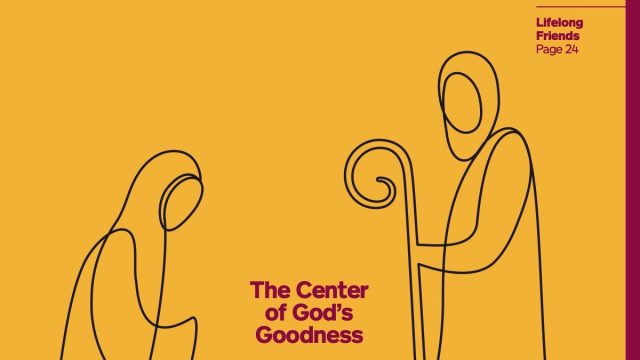Jonah is a household name in the three main monotheistic faiths.

Jonah is a household name in the three main monotheistic faiths. Judaism, Christianity, and Islam all tell the slightly humorous story of the renegade prophet who tries to run away from the living God. His experience in the belly of the big fish has been illustrated by artists throughout the ages. Children’s books or costly mosaics or wall paintings contain the story of a man who was at rock bottom and cried out to God from the depth of the sea.
Jonah surely got a second chance (Jonah 3), even though it took much more than a wild ocean journey in the belly of a great fish to finally make his heart receptive to God’s undefeatable grace and compassion.
There is another story of second (or third) chances. Based on the best Greek manuscript evidence, most English translations tell us that the name of the father of Simon Peter, the extrovert, always-talking-before- thinking disciple of Jesus, was John (John 1:42).¹ Jesus has a special relationship with Peter. He sees his potential. He invites him into His most innermost circle. Intriguingly, in Matthew 16:17 Jesus refers to Peter as “Simon son of Jonah,” linking His disciple to the notorious Old Testament prophet. Peter has just declared Jesus to be the Messiah, and Jesus praises him: “For flesh and blood has not revealed this to you, but My Father who is in heaven.” In our imagination we can see a big smile light up Peter’s face.
Yet moments later, after Jesus describes His suffering, death, and resurrection, Peter takes the Master aside and earnestly but firmly rebukes Him for saying this (verse 22). The Greek uses a very strong term demanding compliance. You just stop talking like this, Jesus! would express this well. Jesus’ reaction is extremely strong: “Get behind Me, Satan!” (verse 23). Don’t do the tempter’s work, Peter. Is it possible that Jesus purposefully uses “son of Jonah” in this context as a pun based on the name of Peter’s father as a reminder of and a connector to the renegade Old Testament prophet?²
With Peter’s threefold denial of Jesus he joins Jonah in his flight from God’s call. He doesn’t want to follow Jesus to the cross, for the cross is not the way—at least not in Peter’s mind. Like Jonah, following resurrection morning Peter receives a second chance (John 21:15-17). Later, when God tells him to reach the Gentiles with the gospel (another connector to Jonah’s story), he needs a threefold repetition of the divine instructions (Acts 10:16).
God loves the Jonahs, Thomases, Peters, and Marthas of this world. He specializes in second chances. He sees potential where we see only dis- appointment. He offers new beginnings where we see simply cul-de-sacs. And when we try to run away from Him, He patiently reminds us that His goodness and mercy are “pursuing” us all the days of our lives (Ps. 23:6).
We just cannot shake Him off.
¹“John” appears in the ESV, RSV, NASB, NRSV, NIV, and many others. The KJV and NKJV translate here “son of Jonah”—based on some manuscripts that apparently seek to harmonize this passage with the reading of Matthew 16:17. Cf. Barclay M. Newman and Eugene A. Nida, A Translator’s Handbook on the Gospel of John (New York: United Bible Societies, 1980), p. 45.
²For more documentation, see Kevin J. Youngblood, Jonah, Exegetical Commentary on the Old Testament (Grand Rapids: Zondervan, 2013), p. 127.








